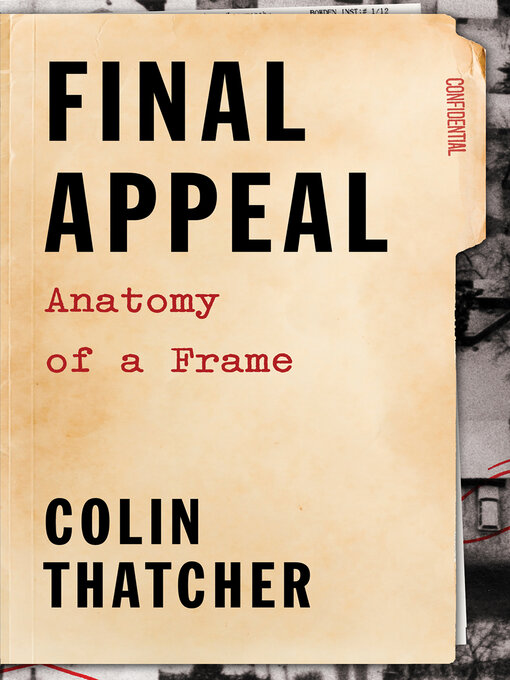- Popular ebook fiction
- Truth and Reconciliation in Canada
- MMIWG
- Mental Health
- Canadian Indigenous Voices
- February Romance 2024
- Canada Reads 2024 longlist
- Black History Month 2024
- Freedom to Read Week 2024
- February - I love to read month
- Indigenous History (Fiction)
- Library Management and Policies
- Library Policies
- See all
-
Description
-
Details
In 1984, Colin Thatcher was convicted of killing his ex-wife and sentenced to life in prison. The murder and trial provoked a national media frenzy, casting the once-prominent Saskatchewan politician as the villain.
After serving twenty-two years, Thatcher was released and finally able to offer his own account of what happened from the time of the murder up until he left prison. Though firmly proclaiming his innocence from the start, he is now able to go behind the bureaucratic red tape and provide full disclosure, including evidence not seen at the trial, legal documents, and personal correspondence, ultimately questioning the public’s faith in local law enforcement, mainstream media, and justice.

OverDrive Read
- ISBN: 9781554905478
- Release date: September 1, 2009
EPUB ebook
- ISBN: 9781554905478
- File size: 715 KB
- Release date: September 1, 2009
Formats
OverDrive Read
EPUB ebook
Languages
English
